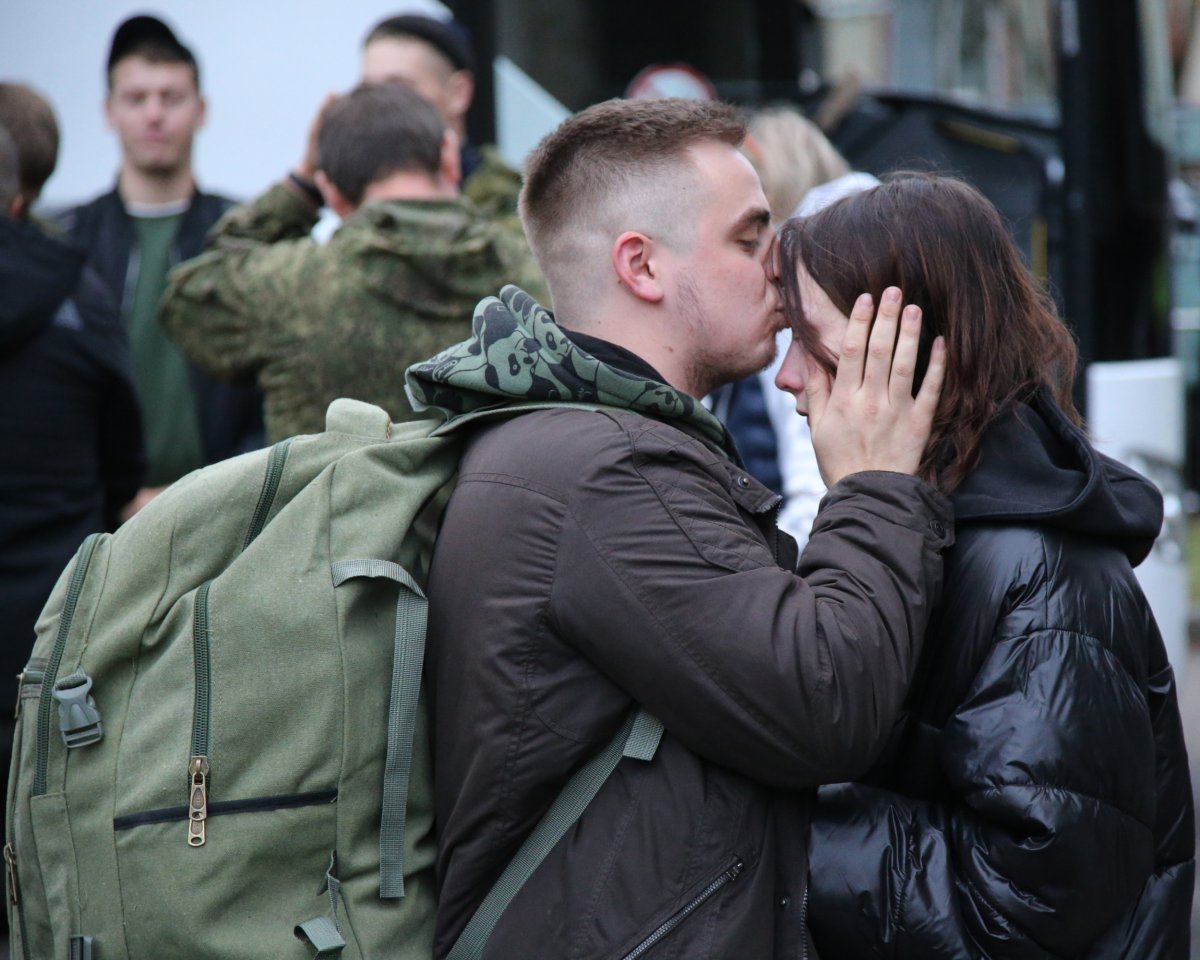The widow of a top Russian officer, who was found shot dead in his office on November 16, has written an angry letter to President Vladimir Putin, saying that he was made a "scapegoat" for issues with the leader's mobilization efforts.
Yulia Boyko, the widow of Colonel Vadim Boyko, wrote an open letter to Putin, saying that her husband committed "self-execution" after being pressured over failures in Russia's mobilization drive.

Vadim Boyko, deputy director of the Vladivostok Pacific Naval College, was heavily involved with Putin's mobilization efforts.
Conflicting reports emerged in the aftermath of his death. Local media outlets including newspaper Dalnevostochnye Vedomosti reported that his death was classed as suicide, while the Baza Telegram channel reported that five gunshots were heard from the colonel's office.
Boyko urged Putin to oversee an investigation into her husband's death. In her letter to the Russian leader, shared by local media outlets, she said that after he failed to meet a recruitment quota, he fell into a "depressed moral and psychological state" and "had insomnia for about a month, losing 15 kilograms."
According to the widow, he became a scapegoat for many issues that arose after Putin announced a partial mobilization of Russian reserves on September 21.
"The employees of the educational institution had no experience in this work, there was not enough personnel, there were many problems at the mobilization points. [For the] mobilized, who served for many years, it was hard to get used to the new realities, to the observance of discipline, and therefore, fights and alcohol abuse were not uncommon," Boyko wrote.
She wrote that real "repressions" against her husband began on November 14, when an audit was conducted on the complaints of those mobilized at a military training ground.
"The inspectors had already openly informed Colonel Boyko that for the loss and damage to state property, more than 100 million rubles of debts would be passed on to him and he would be punished with confiscation of property. This was the last straw for the officer," she explained.
She said that the cause of her husband's death could not be "simply problems that arose at work."
"Let's see why a person who was at the training ground, where there is no shortage of weapons and the opportunity to put a bullet in his forehead and end his life, suddenly arrives in Vladivostok, comes to his workplace, enters the office...sits in his chair and fires five bullets from his service weapon," Boyko wrote.
Boyko suggested that he wanted to give "a sign that trouble is afoot...that the Motherland [Russia] is in danger."
Newsweek has contacted Russia's Foreign Ministry for comment.
Do you have a tip on a world news story that Newsweek should be covering? Do you have a question about the Russia-Ukraine war? Let us know via worldnews@newsweek.com.
Uncommon Knowledge
Newsweek is committed to challenging conventional wisdom and finding connections in the search for common ground.
Newsweek is committed to challenging conventional wisdom and finding connections in the search for common ground.
About the writer
Isabel van Brugen is a Newsweek Reporter based in Kuala Lumpur. Her focus is reporting on the Russia-Ukraine war. Isabel ... Read more
To read how Newsweek uses AI as a newsroom tool, Click here.








